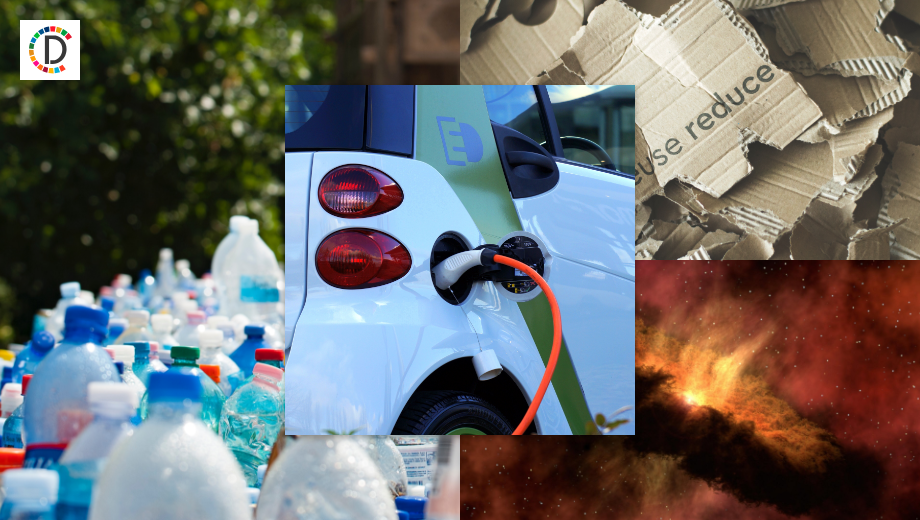German president visits Kyiv as West mulls rebuilding plan

Germany's president arrived in Kyiv on Tuesday for his first visit to Ukraine since the start of Russia's invasion, as Western countries mulled a massive plan for Ukrainian rebuilding when the war eventually ends.
President Frank-Walter Steinmeier said after arriving that "it was important to me in this phase of air attacks with drones, cruise missiles and rockets to send a signal of solidarity to Ukrainians." Eight months of pummeling by the Kremlin's forces has ruined homes, public buildings and the power grid. The World Bank estimates the damage to Ukraine so far at 350 billion euros (USD 345 billion).
The German president, whose position is largely ceremonial, made it to Ukraine on his third try.
In April, he was planning to visit the country with his Polish and Baltic counterparts, but said his presence "apparently … wasn't wanted in Kyiv." Steinmeier has been criticised in Ukraine for allegedly cozying up to Russia during his time as Germany's foreign minister.
Last week, a planned trip was put off because of security concerns.
Steinmeier's visit came as Ukrainians are bracing for less electricity and heating this winter following a sustained Russian barrage on their grid and thermal power plants in recent weeks. Deputy Prime Minister Irina Vereshchuk asked citizens living abroad not to return to Ukraine for the winter to avoid placing further strain on the power supply.
"We need to survive the winter but, unfortunately, the (electricity) networks will not survive," Vereshchuk said on Ukrainian television. "We understand that the situation will only get worse, and this winter we need to survive." Citizens in the southern city of Mykolaiv lined up for water and essential supplies Tuesday as Ukrainian forces advanced on the nearby Russian-occupied city of Kherson. In Berlin, meanwhile, European Union leaders brought together experts to start work on a "new Marshall Plan" for the future rebuilding of Ukraine — a reference to the US-sponsored plan that helped revive Western European economies after World War II.
German Chancellor Olaf Scholz said the meeting aims to discuss "how to ensure and how to sustain the financing of the recovery, reconstruction and modernisation of Ukraine for years and decades to come." Scholz, who co-hosted the meeting with European Commission President Ursula von der Leyen, said he's looking for "nothing less than creating a new Marshall Plan for the 21st century — a generational task that must begin now." Even so, one of Moscow's allies on Tuesday urged Russia to step up the pace and scale of Ukraine's destruction.
Ramzan Kadyrov, the regional leader of Chechnya who has sent troops from the region to fight in Ukraine, urged Moscow to wipe off the map entire cities in retaliation for Ukrainian shelling of Russia's territory. Authorities in Russia's Kursk and Belgorod regions that border Ukraine have repeatedly reported Ukrainian shelling that damaged infrastructure and residential buildings.
"Our response has been too weak," Kadyrov said in a statement posted on his messaging app channel. "If a shell flies into our region, entire cities must be wiped off the face of the Earth so that they don't ever think that they can fire in our direction." Ukrainian authorities, meanwhile, sought to ease public fears over Russia's use of Iranian drones to strike infrastructure, claiming increasing success in shooting them down.
Ukraine's forces have shot down more than two-thirds of the approximately 330 Shahed drones that Russia has fired through Saturday, the head of Ukraine's intelligence service, Kyrylo Budanov, said Monday. Budanov said Russia's military had ordered about 1,700 drones of different types and is rolling out a second batch of about 300 Shaheds.
Although Russia and Iran deny that the Iranian-built drones have been used, the distinctive triangle-shaped Shahed-136s have rained down on civilians in Kyiv and elsewhere.
Britain's Ministry of Defense said Russia was likely to use a large number of drones to try to penetrate the "increasingly effective Ukrainian air defenses" — to substitute for Russian-made long-range precision weapons "which are becoming increasingly scarce." Russia's "artillery ammunition is running low," the British report said Tuesday.
The Institute for the Study of War, in Washington, added that "the slower tempo of Russian air, missile, and drone strikes possibly reflects decreasing missile and drone stockpiles and the strikes' limited effectiveness of accomplishing Russian strategic military goals." Kyiv also says it needs more war materiel. "We need more weaponry, we need more ammunition to win this war," Ukrainian Prime Minister Denys Shmyhal told reporters in Berlin. He added: "We need tanks from our partners, from all of our partners; we need heavy armoured vehicles, we need additional artillery units, howitzers." Despite the reduced attacks, at least seven civilians were killed and another three wounded in the latest Russian shelling of the eastern Donetsk region, Ukraine's presidential office said Tuesday.
The attacks came as the Russians pressed their offensive on the strategically placed towns of Bakhmut and Avdiivka and also shelled other areas in the Donetsk region, which is part of Ukraine's industrial heartland of Donbas.
Ukrainian guerrillas reportedly staged several explosions in a Russian-held southern city.
A car bomb exploded Tuesday near an office building that houses the headquarters of the Federal Security Service, Russia's top security agency, and a local television company, according to Ivan Fedorov, the mayor of the city of Melitopol.
The city's Moscow-appointed administration in Melitopol said five people were injured by the explosion.
Melitopol is in the Zaporizhzhia region, part of which was captured by the Russian military early in the invasion. It was illegally annexed by Russia last month along with three other regions of Ukraine.(AP) RUP RUP
(This story has not been edited by Devdiscourse staff and is auto-generated from a syndicated feed.)










